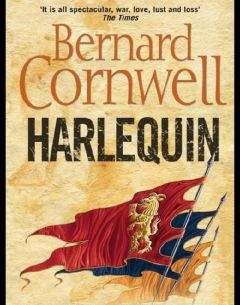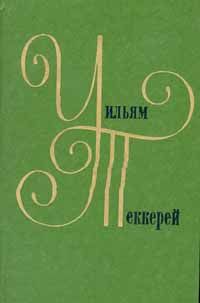Bernard Cornwell - The Grail Quest 2 - Vagabond
'How do you know?' Belas asked quietly.
'I know!' Sir Geoffrey said harshly.
Belas put down the pen. 'Sit,' he ordered the Scarecrow, 'and tell me what you want.'
'Two things,' Sir Geoffrey said as he sat again. 'I came to this damned town to make money, but we're having thin pickings, monsieur, thin pickings.' Very thin, for English troops had been pillaging Brittany for months and there were no farms within a day's ride that had not been burned and robbed, while to ride further afield was to risk strong enemy patrols. Beyond the walls of its fortresses Brittany was a wilderness of ambush, danger and ruin and the Scarecrow had quickly dis-covered that it would be a hard landscape in which to make a fortune.
'So money is the first thing you want,' Belas said acidly. 'And the second?'
'Refuge,' Sir Geoffrey said.
'Refuge?'
'When Charles of Blois takes the town,' the Scarecrow said, 'then I want to be in your courtyard.'
'I cannot think why,' Belas said drily, 'but of course you will be welcome. And as for money?' He licked his lips. 'Let us first see how good your information is.'
'And if it is good?' the Scarecrow asked.
Belas considered for a moment. 'Seventy ecus?' he suggested. 'Eighty, perhaps?'
'Seventy ecus?' The Scarecrow paused to convert it into pounds, then spat. 'Just ten pounds! No! I want a hundred pounds and I want them in English-struck coin.'
They settled on sixty English pounds, to be paid when Belas had proof that Sir Geoffrey was telling him the truth, and that truth was that Thomas of Hookton was leading men to Roncelets and they were leaving on the eve of Valentine's Feast which was just over two weeks away.
'Why so long?' Belas wanted to know.
'He wants more men. He's only got half a dozen now and he's trying to persuade others to go with him. He's telling them there's gold to be had at Roncelets.'
'If you want money,' Belas asked acidly, 'why don't you ride with him?'
'Because I'm seeing you instead,' Sir Geoffrey answered.
Belas leaned back in his chair and steepled his pale, long fingers. 'And that is all you want?' he asked the Englishman. 'Some money and refuge?'
The Scarecrow stood, bending his head under the room's low beams. 'You pay me once,' he said, 'and you'll pay me again.'
'Perhaps,' Belas said evasively.
'I give you what you want,' Sir Geoffrey said, 'and you'll pay me.' He went to the door, then stopped because Belas had called him back.
'Did you say Thomas of Hookton?' Belas asked and there was an undeniable interest in his voice.
'Thomas of Hookton,' the Scarecrow confirmed.
'Thank you,' Belas said, and he looked down at a scroll he had just unrolled and it seemed he found Thomas's name written there for his finger checked and he smiled.
'Thank you,' he said again and, to Sir Geoffrey's astonishment, the lawyer took a small purse from a chest beside his desk and pushed it towards the Scare-crow. 'For that news, Sir Geoffrey, I do thank you.'
Sir Geoffrey, back down in the courtyard, found he had been given ten pounds of English gold. Ten pounds for just mentioning Thomas's name? He suspected there was much more to learn about Thomas's plans, but at least he had gold in his pocket now, so the visit to the lawyer had been profitable and there was the promise of more lawyer's gold to come.
But it was still bloody raining.
Thomas persuaded Richard Totesham that instead of writing another plea to the King they should appeal to the Earl of Northampton who was now among the leaders of the army besieging Calais. The letter re-minded his lordship of his great victory in capturing La Roche-Derrien and stressed that achievement might all be for naught if the garrison was not reinforced. Richard Totesham dictated most of the words and Will Skeat put a cross beside his name at the foot of the letter which claimed, truthfully enough, that Charles of Blois was assembling a new and mighty army in Rennes.
'Master Totesham,' Thomas wrote, 'who sends your lordship humble greetings, reckons that Charles's army already numbers a thousand men-at-arms, two times that number in crossbowmen and other men besides, while in our garrison we have scarce a hundred healthy men, while your kinsman, Sir Thomas Dagworth, who is a week's march away, can raise no more than six or seven hundred men.'
Sir Thomas Dagworth, the English commander in Brittany, was married to the Earl of Northampton's sis-ter and Totesham was hoping that family pride alone would persuade the Earl to avoid a defeat in Brittany, and if Northampton were to send Skeat's archers, just the archers and not the men-at-arms, it would double the number of bowmen on La Roche-Derrien's walls and give Totesham a chance to resist a siege. Send the archers, the letter pleaded, with their bows, their arrows, but without their horses and Totesham would send them back to Calais when Charles of Blois was repulsed. 'He won't believe that,' Totesham grumbled, 'he'll know I'll want to keep them, so make sure he knows it's a solemn promise. Tell him I swear on Our Lady and on St George that the archers will go back.'
The description of Charles of Blois's army was real enough. Spies in English pay sent the news which, in truth, Charles was eager for his enemies to learn for the more La Roche-Derrien's garrison was out-numbered the lower its hopes would be. Charles already had close to four thousand men, more were coming every week, and his engineers had hired nine great siege engines to hurl boulders at the walls of the English towns and fortresses in his duchy. La Roche-Derrien would be attacked first and few men gave it a hope of lasting longer than a month.
'It is not true, I trust,' Totesham said sourly to Thomas when the letter was written,
'that you have designs on Roncelets?'
'On Roncelets?' Thomas pretended not to have heard of the place. 'Not Roncelets, sir, but Rostrenen.'
Totesham gazed at Thomas with dislike. 'There's nothing at Rostrenen,' the garrison commander said icily.
'I hear there's food there, sir,' Thomas said.
'Whereas' – Totesham continued as if Thomas had not spoken – 'the Countess of Armorica's son is said to be held at Roncelets.'
'Is he, sir?' Thomas asked disingenuously.
'And if it's a swiving you want,' – Totesham ignored Thomas's lies – 'then I can recommend the brothel behind St Brieuc's chantry.'
'We're riding to Rostrenen,' Thomas insisted.
'And none of my men will ride with you,' Totesham said, meaning none that took his wages, though that still left the mercenaries.
Sir Guillaume had agreed to ride with Thomas, though he was uncomfortable about the prospects for success. He had bought horses for himself and his two men but he reckoned they were of poor quality. 'If it comes to a chase out of Roncelets.' he said, 'we'll be trounced. So take a lot of men to put up a decent fight.'
Thomas's first instinct had been to ride with just a handful of others, but a few men on bad horses would be easy bait. More men made the expedition safer.
'And why are you going anyway?' Sir Guillaume demanded. 'Just to get into the widow's skirts?'
'Because I made a promise to her,' Thomas said, and it was true, though Sir Guillaume's reason had the more truth. 'And because,' Thomas went on, 'I need to let our enemies know that I'm here.'
'You mean de Taillebourg?' Sir Guillaume asked. 'He knows already.'
'You think so?'
'Brother Germain will have told him,' Sir Guillaume said confidently, 'in which case I reckon your Dominican is already in Rennes. He'll come for you in good time.'
'If I raid Roncelets,' Thomas said, 'they'll hear of me. Then, I can be sure they'll come.'
By Candlemas he knew he could rely on Robbie, on Sir Guillaume and his two menat-arms and he had found seven other men who had been lured by the rumours of Roncelets' wealth or by the prospect of Jeanette's good opinion. Robbie wanted to leave straightaway, but Will Skeat, like Sir Guillaume, advised Thomas to take a larger party.
'This ain't like northern England,' Skeat said, 'you can't run for the border. You get caught. Tom, and you'll need a dozen good men to lock shields and break heads. Reckon I ought to come with you.'
'No,' Thomas said hastily. Skeat had his lucid moments, but too often was vague and forgetful, though now he tried to help Thomas by recommending other men to go on the raid. Most turned the invitation down: the Tower of Roncelets was too far off, they claimed, or the Lord of Roncelets was too powerful and the odds against the raiders too great. Some were frightened of offending Iotesham who, fearing to lose any of his garrison, had decreed that no raids should go farther than a day's ride from the town. His caution meant there was little plunder to be had and it was only the poorest mercenaries who, desperate for anything they could turn into cash, offered to ride with Thomas.
'Twelve men is enough,' Robbie insisted. 'Sweet Christ, but I've been on enough raids into England. My brother and I once took a herd of cattle from Lord Percy with just three other men and Percy had half the county searching for us. Go in fast and come out quicker. Twelve men is enough.'
Thomas was almost convinced by Robbie's fervent words, but he worried that the odds were still too uneven and the horses too badly conditioned to allow them to go swiftly in and come out quicker. 'I want more men,' he told Robbie.
'If you go on dithering,' Robbie told him, 'the enemy will hear about you. They'll be waiting for us.'
'They won't know where to wait,' Thomas said, 'or what to think.' He had spread a score of rumours about the raid's purpose and hoped that the enemy would be thoroughly confused. 'But we'll go soon,' he promised Robbie.
'Sweet God, but who's left to ask?' Robbie demanded. 'Let's ride now!'
But that same day a ship came to Treguier and three more Flemish men-at-arms rode into the garrison. Thomas found them that night in a tavern by the river's edge. The three complained how they had been in the English lines at Calais, but there was too little fighting there and thus few prospects of wealthy prisoners. They wanted to try their luck in Brittany and so they_ had come to La Roche-Derrien. Thomas spoke to their leader, a gaunt man with a twisted mouth and with two fingers missing from his right hand, who listened, grunted an acknowledgement and said he would think about it. Next morning all three Flemings came to the Two Foxes tavern and said they were willing to ride. 'We came here to fight,' their leader, who was called Lodewijk, said, 'so we go.'
'So let's leave!' Robbie urged Thomas.
Thomas would have liked to recruit still more men, but he knew he had waited long enough. 'We'll go,' he told Robbie, then he went to find Will Skeat and made the older man promise to keep an eye on Jeanette. She liked and trusted Skeat and Thomas was confident enough to leave his father's notebook in her keeping. 'We shall be back,' he told her, 'in six or seven days.'
'God be with you,' Jeanette said. She clung to Thomas for an instant. 'God be with you,' she said again, 'and bring me my son.'
And next dawn, in a mist that pearled their long mail coats, the fifteen horsemen rode. Lodewijk – he insisted it was Sir Lodewijk though his two companions sniggered whenever he did – refused to speak French, claiming that the language made his tongue sour.
'It is a people of filth,' Lodewijk maintained, 'the French. Filth. The word is good, ja? Filth?'
'The word is good,' Thomas agreed.
Jan and Pieter, Sir Lodewijk's companions, spoke only in guttural Flemish spiced with a handful of English curses they must have learned near Calais.
'What's happening in Calais?' Thomas asked Sir Lodewijk as they rode south.
'Nothing. The town is . . . what you say?' Sir Lodewijk made a circling motion with his hand.
'Surrounded.'
'Ja, the town is goddamn surrounded. By the English, ja? And by ...' He paused, uncertain of the word he wanted, then pointed to a stretch of waterlogged ground that lay east of the road. 'By that.'
'Marshes.'
'Ja! By bloody marshes. And the goddamn bloody French, they are on . . .' Again he was lost for words, so jabbed his mailed finger at the lowering sky.
'Higher ground?' Thomas guessed.
'Ja! Bloody high ground. Not so bloody high, I think, but higher. And they . . .' He put a hand over his eyes, as if shading them.
'Stare?'
'Ja! They stare at each other. So nothing is happens but they and we gets bloody wet. Pissing wet, ja?'
They got wet later that morning when the rains swept in from the ocean. Great curtains of grey lashed the deserted farmlands and upland heaths where the trees were permanently bent towards the east. When Thomas had first come to Brittany this had been a productive land of farms, orchards, mills and grazing, but now it was blasted naked. The fruit trees, untended, were thick with bullfinches, the fields were choked with weeds and the pastures tangled with couch grass. Here and there a few folk still tried to scratch a living, but they were constantly being forced to La Roche-Derrien to work on the ramparts and their harvests and livestock were forever being stolen by English patrols. If any such Bretons were aware of the fifteen horsemen they took care to hide themselves and so it seemed as though Thomas and his companions rode through a deserted country. They rode with one spare horse. They should have had more because only the three Flemings were mounted on good stallions. Sea voyages usually had a bad effect on horses, but Sir Lodewijk made it plain their journey had been unusually quick. 'Bloody winds, is?' He whirled his hand and made a whooshing noise to suggest the strength of the winds which had brought the destriers through in such fine fettle. 'Quick! Bloody quick!'
The Flemings were not only well mounted, but well equipped. Jan and Pieter had fine mail hauberks while Sir Lodewijk had his chest, both thighs and one arm protected by good plate that was strapped over a leather-backed mail haubergeon. The three wore black surcoats with a broad white stripe running down front and back, and all had undecorated shields, though Sir Lodewijk's horse's trapper displayed a badge showing a knife dripping blood. He tried to explain the device, but his English could not cope and Thomas was left with the vague impression that it was the mark of a trading guild in Bruges.
'The butchers?' he suggested to Robbie. 'Is that what he said? Butchers?'
'Bloody butchers don't make war. Except on pigs,' Robbie said. He was in a fine mood. Raiding was in his blood and he had heard stories in La Roche-Derrien's taverns of the plunder that could be stolen if a man was willing to break Richard Totesham's rule and ride further than a day's journey from the town. 'The trouble in the north of England,'
he told Thomas, 'is that if it's worth stealing then it's behind big bloody walls. We scratch up some cattle now and then, and a year ago I stole a fine horse off my Lord Percy, but there's not any gold and silver to be had. Nothing that you'd call real plunder. The Mass vessels are all wood or pewter or clay, and the poor boxes are poorer than the poor. And ride too far south and the bastards will be waiting for you on the way home. I hate bloody English archers.'




